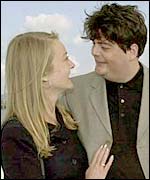Ever since the story broke on 5th March about the strange case of the poisoning the former MI6 agent and Russian military intelligence officer, Sergei Skripal, I have been asked to do interview after interview, commenting on this hideous case.
Of course, as the case developed the points I made also evolved, but my general theme has remained consistent: that, despite the immediate UK media hysteria that “it must be the Russians”, we needed to let the police and intelligence agencies the space and time to get on and build up an evidential chain before the UK government took action.
Unfortunately, this has not come to pass, with the UK encouraging its allies in an unprecedented wave of mass diplomatic expulsions around the world. One might say that perhaps Theresa May has some shit-hot secret intelligence with which to convince these allies. But intelligence is not evidence and, as we all too painfully remember from the Iraq War débâcle in 2003, any intelligence can be spun to fit the facts around a pre-determined policy, as was revealed in the leaked Downing Street Memo.
Anyway, from the bottom up in terms of chronology, here are a few of the interviews I have managed to harvest from the last few, crazy weeks. More will be added as they come in. And here are a couple of extras: a BBC Breakfast News item and a Talk Radio interview.
A longer and more detailed article will follow shortly.
CGTN “Dialogue” discussion about the Skripal case 26 03 2018 from Annie Machon on Vimeo.
RT International News Interview 10 03 2018 from Annie Machon on Vimeo.
CrossTalk on Sergei Skripal ‘Publicity Murder’ from Annie Machon on Vimeo.
Al Jazeera’s “Inside Story” 08 03 2018 from Annie Machon on Vimeo.
Good Morning Britain Interview 06 03 2018 from Annie Machon on Vimeo.
BBC Newsnight 05 03 2018 from Annie Machon on Vimeo.
RT Interview about the Skripal case 05 03 2018 from Annie Machon on Vimeo.



